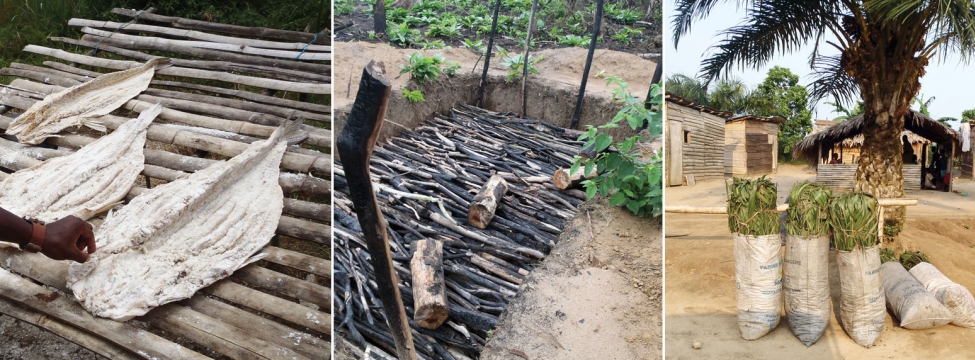To serve you better, our new website displays information specific to your location.
Please visit the site and bookmark it for future use.
Incorporating ecosystem services into ESIA’s - a case study from the Republic of Congo
Ecosystem services are the benefits derived from services within ecosystems that contribute to people’s well-being. If no one benefits from the ecosystem, there is no ecosystem service. Ecosystem services include provisioning (food, freshwater, medicine), regulating (erosion control, flood protection), and cultural services (sacred sites, tourism, recreation), all of which are underpinned by supporting services. Natural resource projects equally depend on these services.
The need to “maintain the benefits from ecosystem services” is one of the new objectives of the 2012 IFC Performance Standards – resulting in a major change in approach to managing environmental and social risks and the impacts of projects. Project proponents seeking funding from international financial institutions must now identify impacts on priority ecosystem services, and apply the mitigation hierarchy to avoid, minimise and lessen impacts on these ecosystem services.
To effectively manage risks and impacts, assessing ecosystem services should be integrated into the ESIA process. The typical activities that occur during the ESIA scoping phase need to be adapted and, while meeting with affected stakeholders, relevant ecosystem services should be systematically identified and prioritised. Once priority ecosystem services have been identified, ESIA practitioners and affected stakeholders should define the scope of the baseline data collection to ensure suitable information is collected to enable the impacts on ecosystem services to be assessed.
SRK UK was commissioned to undertake an ESIA for the Sintoukola Project (Republic of Congo), which is located in a sensitive bio-physical and social setting. SRK and the client worked closely to incorporate ecosystem services into the ESIA process.
Greater emphasis was placed on scoping activities to ensure the ESIA process adequately addressed project risks and impacts. Stakeholder engagement involved identifying current ecosystem services within the project area. In addition, a series of reconnaissance studies were conducted for the key disciplines (biodiversity, natural resource use, cultural heritage, social, water), to identify cross-cutting issues needing to be linked between the bio-physical and social studies. This helped define an integrated baseline program which incorporated the benefits of existing ecosystem services to local communities. A workshop held with baseline specialists was key to evaluating the impacts and developing management measures. This enabled data sharing across multiple disciplines and ensured impacts on ecosystem services were described and mitigated in an integrated manner.
Overall, impacts on ecosystem services were appropriately addressed within the ESIA; in addition, opportunities were identified to further improve the integration of ecosystem services for future projects.
Louise Bland: lbland@srk.co.uk
Rowena Smuts: rsmuts@srk.co.uk
|
You can download a PDF of the entire |
PDF A4
|
PDF Letter
|
|
|
|
Our newsletters focus on specific areas of interest to earth resource professionals and clients. Each is available as an Adobe Acrobat PDF file. If you don't already have Adobe's PDF reader, you can download it free.


